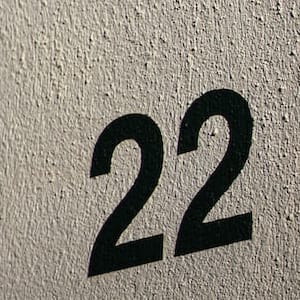number games: Idiom Meaning and Origin
What does ‘number games’ mean?
The idiom "number games" refers to manipulative tactics or strategies involving numbers, often used to deceive or confuse others. It can also imply a situation where people compete or engage in a battle of wits using numerical calculations or statistics.

Idiom Explorer
The idiom "turn a trick" refers to the act of performing a task or solving a problem, often in a clever or skillful way. It can also have a negative connotation, implying the use of deception or manipulation to achieve a desired outcome.
The idiom "opposite number" refers to someone who has the same position or job as another person, but works or represents a different group or organization. It is often used to compare or contrast two individuals who are counterparts in different teams or entities.
The idiom "on the game" is used to describe someone who is engaged in prostitution.
The idiom "only game in town" means that there's only one option or choice available, typically in a particular situation or context.
The idiom "one up" means to outdo or surpass someone in a competitive or comparison situation.
The idiom *onesie-twosie* refers to a small number of something, often implying that it is not significant or important. It can also describe actions or events that occur in a random or haphazard manner.
The idiomatic expression "one-horse race" refers to a competition or contest in which the outcome is completely predetermined, usually due to the overwhelming superiority of one participant.
The idiom "number one" means the top or best in a particular category or ranking.
The idiom "name of the game" means the essential or most important aspect or goal of a particular situation or activity.
An idiom meaning a foolish or pointless activity.
Decoding the Enigma
The idiom "number games" refers to manipulative or deceptive tactics involving numbers. It is used figuratively to describe situations where numbers are used to mislead or confuse people.
One interesting fact about the idiom "number games" is that it originated in the mid-20th century. Although the exact origin and earliest recorded usage of the idiom are uncertain, it has become a commonly used expression in English language.
Another related idiom is "crunch numbers." This phrase is often used in business or financial contexts to describe the act of analyzing and manipulating numerical data to make informed decisions. It involves carefully examining and evaluating numbers to gain insights or make calculations. When someone is "crunching numbers," they are engaging in analytical thinking and problem-solving.
Similarly, the idiom "fun and games" is often used to describe a lighthearted or enjoyable activity. It can refer to playful interactions, entertainment, or recreational pursuits. When people use the phrase "fun and games," they are emphasizing the enjoyable and non-serious nature of the activity.
Returning to the idiom "number games," it is frequently associated with business or politics, where numbers can be manipulated for personal gain or to influence outcomes. People may intentionally inflate or deflate numbers, misrepresent data, or use statistical techniques to create a false impression. This manipulative use of numbers is often seen as unethical or deceptive.
Additionally, the idiom "number games" can also involve mathematical puzzles, riddles, or games that rely on numerical calculations or patterns. These activities encourage the use of mathematical skills and logical thinking. Whether it's solving a Sudoku puzzle or competing in a math competition, these number games provide opportunities for mental stimulation and enjoyment.
When discussing mathematical or numerical concepts, the idiom "number games" can convey a sense of playfulness or lightheartedness. It is used to refer to activities, puzzles, or challenges involving numbers that are meant to entertain or engage people in a fun way. These number games can range from simple math exercises to complex brain teasers.
The idiom "number games" carries a multifaceted meaning that encompasses both negative and positive connotations. Its primary usage revolves around the manipulative or deceptive use of numbers in business or politics, as well as mathematical puzzles or challenges. While its exact origin remains unclear, the idiom is commonly used to characterize situations where numbers are used in a way that may mislead or confuse people.
To recap, the idiom "number games" encompasses various meanings and contexts. It can refer to manipulative tactics involving numbers, such as in business or politics. It can also relate to mathematical puzzles or challenges that require analytical thinking. Additionally, it can convey a sense of playfulness or lightheartedness when discussing numerical concepts. Similarly, the related idioms "crunch numbers" and "fun and games" have their own distinct meanings and associations. "Crunch numbers" focuses on analyzing and manipulating numerical data, while "fun and games" emphasizes enjoyable and recreational activities. These idioms add depth and nuance to conversations about numbers and the different ways in which they are used and perceived.
Example usage
Examples of how the idiom *number games* can be used in a sentence:
- She suspected that the company was playing some number games with their financial reports.
- Don't let him fool you with his number games; he's just trying to make himself look better.
- The politicians engaged in a series of number games to manipulate the statistics and deceive the public.
More "Games" idioms



